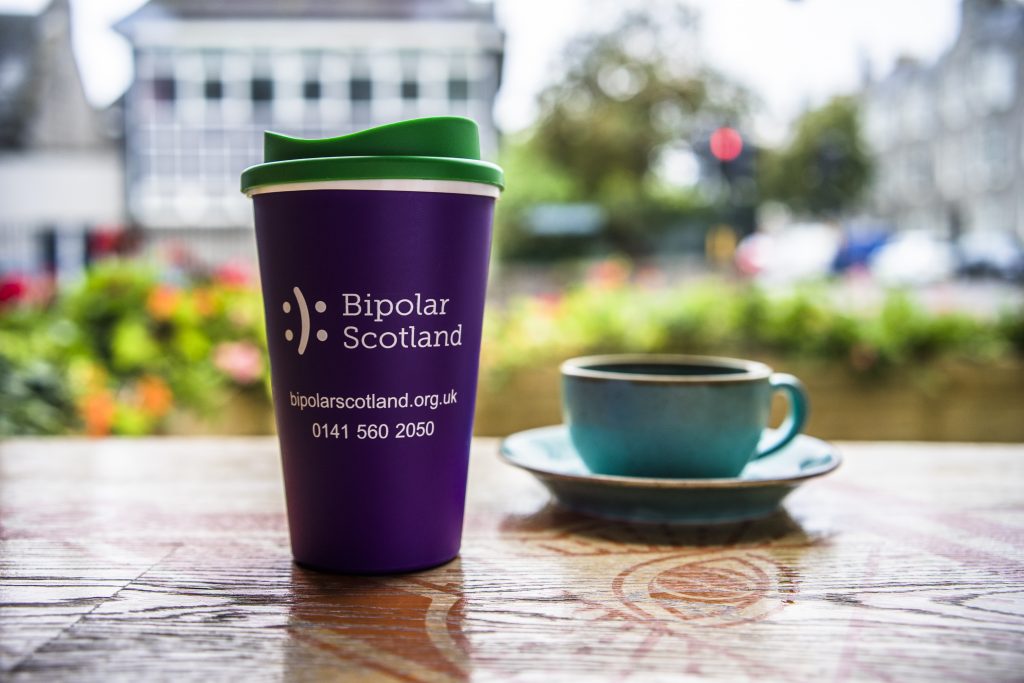Q & A with Professor Daniel Smith
We had the pleasure of speaking to Chair of Psychiatry and Head of the Psychiatry Division at Edinburgh University, Professor Daniel Smith, for World Bipolar Day. Professor Smith has been a huge help to Bipolar Scotland over the years acting as a medical advisor. He has conducted many research projects into bipolar over the years, winning awards for his work along the way, so we were delighted to get the chance to pose some frequently asked questions from our supporters to him.
What advice would you give to a partner or family member when they are trying to help someone who is in denial about having bipolar?
I would say that patience, reassurance, and support are really important. Many people with bipolar disorder find it a difficult diagnosis to accept and it can sometimes take years for this to happen. My advice would be to avoid confrontation and just try to support them in a consistent way until they feel ready to accept the diagnosis.
What effect can Lithium have on someone when taken for a long time?
Lithium is a highly effective medication for bipolar disorder but does have side-effects and some longer-term effects (this is why regular monitoring of kidney function and thyroid function are needed). Sometimes concern about kidney-related side effects leads to people stopping lithium but, in most cases, this can be managed by just reducing the dose and monitoring kidney function carefully. The most obvious effect of lithium is that it reduces the risk of relapse (for both depression and mania) and it has an anti-suicidal effect.
Are there any books you would recommend to people living with bipolar or their friends and family to help give them insight into the illness?
I always recommend “Bipolar Disorder for Dummies” by Dr Candida Fink. Despite the title, it is the best book I have found for supporting individuals and family members with bipolar disorder.
Do you think there has been improvements made in the average time between someone becoming ill and then being diagnosed over the last 20 years?
I think things are slowly improving in terms of knowledge about diagnosis and I think this long lag time between onset and diagnosis will improve gradually.
What do you think of the current diagnosis criteria, and does it have an impact on the gap between symptoms and diagnosis?
I view the current diagnostic criteria for bipolar disorder as useful for clinical practice but they don’t capture the clinical and everyday complexity that most people with this diagnosis experiences. I also view these criteria as ‘works in progress’ that need to be constantly updated as we gather new information.
Are you aware of any research ongoing into the causes of bipolar involving genetics etc?
In the last two years there have been major advances in terms of discovering genetic risk factors for bipolar disorder. We now know that bipolar disorder is caused by the effects of many hundreds of common genetic variants, and we are starting to understand how these genetic risk factors interact with environmental factors (such as sleep problems) and cause mood problems. This research is also important for discovering new treatment approaches.
What research have you been involved in recently and do you have any plans or ideas for future projects?
I am part of the large global genetics research community who are discovering the genetic basis of bipolar disorder but more recently I have been doing work in two main areas: the importance of sleep and circadian rhythms in bipolar disorder, and testing a new treatment called the ketogenic diet (see https://www.bipolarketostudy.com/). I hope to do more work soon on discovering how lithium works in bipolar disorder, for example, we think it might be effective because it helps to stabilise sleep and circadian rhythms.
Bipolar Scotland recently secured funding to develop a launch a new service for people newly diagnosed with bipolar. This service will offer emotional and practical support from peer workers and volunteers for up to six months following a diagnosis – what do you think could be the impact of this service on people who are recently diagnosed with bipolar?
This is a great service that is much needed, and I would expect it to make a real difference to the lives of people with bipolar disorder and their families. It fills a really important gap in NHS services.
 510
510